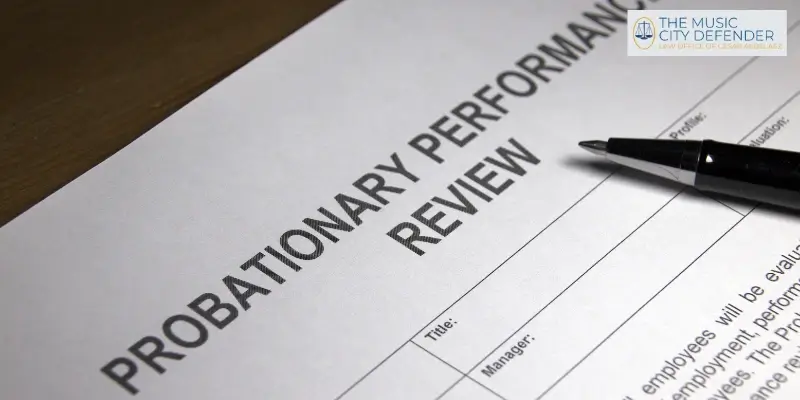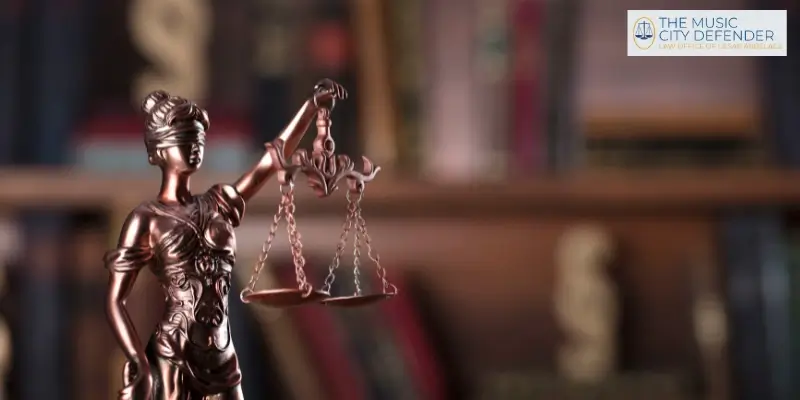|
|
Last Modified on Aug 26, 2025
If you’re currently on probation or parole, or you’re facing the possibility of either, it’s natural to have questions. You may be wondering, “What is the difference between parole and probation in Tennessee?” Understanding this can help you navigate your situation with more confidence. Both involve supervision in the community, but the rules, conditions, and consequences for violations are different.
About The Law Office of Cesar Arbelaez
At The Law Office of Cesar Arbelaez, we’re committed to providing experienced and compassionate criminal defense throughout Tennessee. Cesar Arbelaez, the firm’s lead attorney, brings eight years of experience in criminal law and was the first Hispanic male prosecutor hired by the Davidson County District Attorney’s Office in Nashville, where he earned a reputation for fairness, integrity, and excellence.
As a first-generation immigrant, Cesar is especially attuned to the challenges faced by diverse communities. He works tirelessly to bridge language and cultural gaps, making legal representation accessible to every client.

What Is Probation?
Probation is a sentence handed down by the court that lets someone serve their time in the community under supervision, as opposed to serving their time behind bars. Under Tennessee probation laws, it’s often used to give first-time offenders or low-risk individuals a second chance, allowing them to avoid prison while still being held responsible for their actions.
Judges can grant probation for a wide range of offenses, from relatively minor misdemeanors to certain types of felony convictions. A probation sentence typically comes with a set of conditions that the offender must follow, and these conditions could include:
- Regular check-ins with a probation officer
- Maintaining employment or attending school
- Abstaining from alcohol or illegal drugs
- Completing community service hours
- Attending counseling or rehabilitation programs
- Avoiding criminal activity and obeying all laws
Violating any of these conditions can result in serious consequences, including the revocation of your probation, which could potentially lead to a prison sentence. Because of the complexity of these rules, working with a probation attorney can help ensure compliance so you can minimize any risks of violation.
What Is Parole?
Parole is when someone is granted early release from prison because they’ve met certain standards to qualify. The parole board looks at things such as how you behaved in prison, what crime you were convicted of, and whether any prison officials recommend you for release. A parole lawyer can help you figure out if you’re eligible, guide you through the hearing process, and make sure you’re prepared for the supervision and rules that come with being on parole.
People on parole have to follow strict rules, much like those on probation. This usually means checking in regularly with a parole officer, keeping a steady job, staying out of trouble, and sometimes attending counseling or treatment programs. If they break any of these conditions, the consequences are serious—they can be sent back to prison to serve out the rest of their sentence.
Key Differences Between Probation and Parole
With prison populations growing by 2% in 2022, the number of prison admissions due to violations of probation and parole reaching 42%, and over 3.6 million people under supervision as of 2022, it’s important to note that though probation and parole both involve serving part of a sentence under supervision in the community, they operate in different ways. The main distinctions include:
- Timing. Probation is typically ordered instead of prison time, while parole happens after serving part of a prison sentence.
- Who grants it. A judge grants probation at sentencing, and parole is approved by a parole board.
- Consequences for violations. Probation violations are handled in court, while parole violations are reviewed by the parole board.
Understanding how probation and parole differ helps you see what’s at stake in each situation. Whether you’re serving a sentence in the community or transitioning out of prison, knowing the rules and who oversees your case can make it easier to stay on track and avoid ending up behind bars.
Hire a Probation Lawyer
Navigating probation isn’t always straightforward. The conditions can be strict, and even a small mistake can lead to serious consequences. Having an experienced probation lawyer by your side can help you stay compliant, protect your rights, and avoid unnecessary setbacks. They offer:
- Clear guidance on your obligations
- Representation in court
- Negotiating favorable terms
- Protecting your record
When you hire a probation lawyer, it can make the difference between successfully completing your probation and facing harsher consequences. Having legal support ensures you are informed, prepared, and protected at every step.

FAQs About Parole and Probation Law in Murfreesboro,TN
Can Probation or Parole Conditions Be Changed After They’re Set?
In some cases, conditions can be modified if they’re too restrictive, no longer necessary, or if they interfere with your employment or family obligations. A probation attorney or parole lawyer can petition the court or parole board to adjust the terms, such as by reducing reporting requirements or allowing travel for work.
Can a Probation or Parole Officer Require Drug Testing Without Suspicion?
Yes, both probation and parole officers can mandate random drug tests as part of your supervision conditions. Tennessee probation laws let officers request drug tests to make sure you’re being compliant with your abstinence from drugs or alcohol, and testing isn’t limited to situations where there’s reason to suspect substance use.
Can Technology, Like GPS Monitoring, Be Required During Probation or Parole?
Yes, in some cases, Tennessee probation laws and parole regulations allow electronic monitoring to ensure compliance with curfews, location restrictions, or the terms of a house arrest. GPS devices track movement and alert authorities if any conditions are violated. An attorney can challenge the monitoring or negotiate alternatives, such as increased reporting instead of electronic surveillance.
Can Probation or Parole Status Impact Employment Opportunities?
Yes, probation or parole status can impact employment opportunities. Many employers consider criminal history when hiring, and your probation or parole status could appear on background checks. Additionally, probation and parole conditions could limit work locations, travel, or schedules. Consulting with an experienced attorney can help you navigate employment challenges, request modifications to supervision terms, and ensure compliance with Tennessee probation laws while pursuing your career goals.
Protect Your Future With The Law Office of Cesar Arbelaez
Probation and parole can be complicated, and even minor missteps can carry serious consequences. That’s why The Law Office of Cesar Arbelaez is here to stand by your side. Our team understands Tennessee probation laws inside and out, and we work tirelessly to protect your rights and your freedom.
Contact us today to schedule a free consultation.





